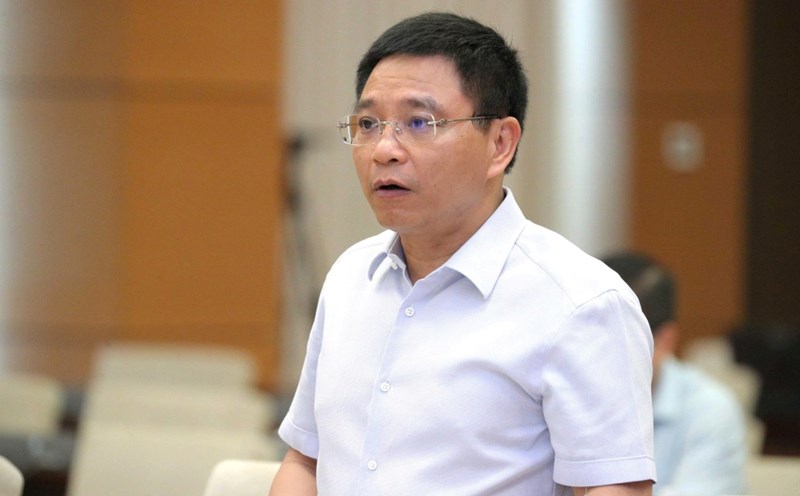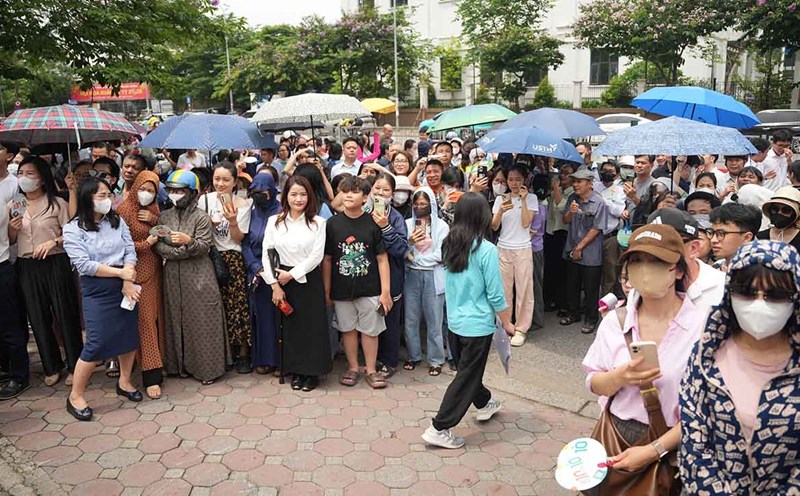On the morning of June 9, the National Assembly Standing Committee gave its opinion on the reception, explanation, and revision of the draft Law on Digital Technology Industry (DIT).
Regarding transitional provisions, the CNCNS Law is adjusting a number of new contents that have not been implemented in practice such as digital assets, artificial intelligence, semiconductors, etc.
To ensure flexibility in management and timely adaptation to the rapid development of technology, the draft law stipulates that the Government may issue legal documents under its authority within 2 years from the effective date of this law.
Regarding this content, Vice Chairman of the National Assembly Vu Hong Thanh said that in the context of science and technology, innovation, and digital transformation being run very quickly, it is not appropriate to give 2 years to complete the issuance of legal documents.
The Vice Chairman of the National Assembly said that this time is too long, and it is necessary to study to speed up the issuance of relevant legal documents. He proposed to stipulate that within just 1.5 years, all relevant documents must be issued so that the policy can soon come into life and promote double-digit growth.
Speaking, Politburo member and National Assembly Chairman Tran Thanh Man said that if there is careful preparation, when the decree and guiding circular are passed, it should take effect soon to synchronize with the Law on Science, Technology and Innovation ( considered for approval at the 9th Session).
The National Assembly Chairman stated that the CNCNS Law will serve Resolution 57, Resolution 68 of the Politburo... which are extremely urgent contents.
Regarding content, the National Assembly Chairman said that the issue of artificial intelligence (AI) has been revised in the direction of encouraging development, taking people as the center. At the same time, additional risk management criteria and clear identification signs for AI products.
In the economic development strategy for the 2025-200 period, with a vision to 2035, we must do a strong digital transformation and develop AI. In which each person and business has a virtual assistant. Currently, some countries have established National Committees on Artificial Intelligence such as Thailand and Singapore.
The National Assembly Chairman suggested that drafting and reviewing agencies continue to review and improve regulations to ensure consistency with other laws, not overlapping with current laws. Create a favorable legal corridor for the development of digital technology enterprises.
It is necessary to clarify preferential mechanisms for strategic industries such as semiconductor and AI. At the same time, ensuring feasibility in implementing support policies, there needs to be a short-term take-off.
The National Assembly Chairman emphasized the need to strengthen risk management, especially in the fields of digital assets and AI to both encourage and protect the rights of people and businesses.
"We must carefully prepare the guiding decrees. If there are already decrees, this law will take effect from July 1. If not, it should be postponed by a month, effective from August 1. Don't do it right away because there are no instructions, it's like not being issued yet.
I propose that in order to ensure that the draft law passed will be put into practice effectively, avoiding arising, I also avoid arising unnecessary administrative procedures," the National Assembly Chairman emphasized.











